178: Artificial Intelligence and Canada's Future?
Remarks from Canada's Future Minister of AI
One of the technologies we have access to here at Metaviews is the ability to receive information from parallel dimensions in which alternate timelines are playing out. In light of news yesterday that the Carney government had appointed a new minister of AI, we decided to see what said minister might have done if we were not living in this darkest of timelines… 😎
Honourable Members, colleagues, fellow citizens, those who wish to become Canadians, and friends listening in the future —
Today, I come not to dazzle you with gadgets or hype you with visions of a silicon utopia.
I come to tell you the truth about power, about sovereignty, and about the future of this country.
AI is not just a technology.
AI is a terrain of power.
It’s the new operating system for our economy, our politics, and our daily lives.
But here’s the problem:
We have left this terrain to the private sector.
And they are failing.
Not because they are incompetent.
They are very competent—at serving themselves.
They are failing because the private sector is structurally incapable of seeing AI as anything other than a tool for profit extraction and control.
They cannot—and will not—build AI for the public good.
They cannot—and will not—prioritize the collective needs of society over their own shareholder returns.
This is why, today, we declare a new chapter.
Canada will no longer be a passive user of foreign-owned AI systems.
Canada will become a builder, a steward, and a leader of AI as a commons—a resource governed collectively, serving the many, not the few.
The Commons as Our North Star
Throughout history, the commons—whether land, water, or knowledge—has been the foundation of resilient societies.
AI must now join that tradition.
We will make AI open, participatory, and accountable.
We will create public data commons, where citizens decide how their data is used—and how it is not.
We will build public AI infrastructure, not to replace workers, but to empower them.
AI should help nurses, not bosses.
AI should assist farmers, not hedge funds.
AI should strengthen public service, enabling civil servants to work smarter, serve better, and regain their dignity as agents of democracy—not as cogs in broken bureaucracies or contractors to Silicon Valley.
Canada as an International Rebel
But this is not just a domestic agenda.
This is a global invitation.
In a world dominated by an AI arms race between empire and empire, Canada can be something different.
We can be the country that says: AI will not be a weapon.
AI will not be a colonial tool.
AI will not be a black box of manipulation and harm.
We will work with Indigenous nations, the Global South, and any community tired of being treated as data mines or test markets.
We will lead the formation of a Global AI Commons, where countries, movements, and communities collaborate on building AI for food sovereignty, disaster resilience, public health, and climate justice.
We will offer sanctuary to AI whistleblowers.
We will welcome the innovators who want to build outside the suffocating logic of profit.
Why This Must Be Public
AI, left to the private sector, will not serve us.
It cannot.
Their incentives are wrong.
Their timelines are wrong.
Their vision is small, narrow, and dangerous.
AI must be publicly led, publicly owned, publicly governed.
Yes, we will work with industry—but as partners, not as masters.
Yes, we will regulate them—but more importantly, we will outbuild them.
Because the real risk is not AI itself.
The real risk is leaving AI to those who see it only as another oil well to pump, another rent to collect.
We’ve seen this movie before:
They told us the market would solve climate change.
It didn’t.
They told us the market would solve inequality.
It didn’t.
They are now telling us the market will solve the future of intelligence itself.
They are wrong.
And we cannot afford to wait for their failure to become our catastrophe.
A New Deal for Intelligence
So here is our promise, from the Ministry of Artificial Intelligence Commons:
We will build AI for the commons, not the corporations.
We will empower civil servants, citizens, and communities to shape the tools that shape them.
We will lead globally, not as a superpower, but as a steward of peace, justice, and solidarity.
We will treat AI not as an end in itself, but as a means to rebuild our democracy, our economy, and our relationship to each other.
This is not just an AI policy.
This is a New Deal for Intelligence itself.
And it starts now.
Here.
With us.
With you.
With the commons.
Let’s get to work.
AI Commons Act (2025)
An Act to Establish the Governance, Stewardship, and Collective Ownership of Artificial Intelligence as Public Infrastructure and Commons
Preamble
Whereas artificial intelligence is a foundational technology that will shape the future of work, governance, culture, and the economy;
Whereas private, profit-driven models of AI development and deployment have demonstrated systemic failures, including harms to human rights, democracy, labour, and the environment;
Whereas the stewardship of intelligence—human or artificial—must be democratic, participatory, and oriented toward the collective good of current and future generations;
Therefore, Parliament enacts the AI Commons Act to assert Canada's leadership in the creation, governance, and global promotion of AI as a commons.
PART I: AI as Public Infrastructure
Declaration of AI as Public Infrastructure
All foundational AI systems, large language models, data repositories, and national compute infrastructure serving public purposes are hereby designated as public infrastructure.
Such systems shall be developed, maintained, and governed under public ownership or cooperative commons-based models.
Creation of the Canadian AI Commons Authority (CAICA)
Establish an independent Crown agency responsible for the stewardship, governance, and expansion of the Canadian AI Commons.
CAICA shall:
Operate and govern public AI infrastructure.
Manage public data commons, ensuring privacy, consent, and collective benefit.
Provide public AI services to civil society, cooperatives, municipalities, First Nations, and small businesses.
PART II: Governance of AI by the Commons
Establishment of Citizens’ Assemblies on AI
National and regional Citizens’ Assemblies on AI shall be convened annually to oversee and guide AI policy, funding priorities, and ethical frameworks.
Decisions of these assemblies shall have binding authority over CAICA.
Creation of Community AI Labs
Federal funding and infrastructure support shall be provided to establish community-run AI Labs across the country.
These labs shall focus on local needs, from language preservation to agriculture, accessible to unions, cooperatives, First Nations, and grassroots organizations.
PART III: International Leadership for AI Justice
Formation of the Global AI Commons Initiative
Canada shall lead the creation of a Global AI Commons, open to all countries, with a focus on the Global South, Indigenous communities, and climate-vulnerable regions.
The Initiative will foster:
Open-source collaborations.
Public infrastructure sharing.
Joint governance of global-scale AI systems in alignment with peace, justice, and ecological resilience.
Sanctuary Provisions for AI Whistleblowers and Dissidents
Canada shall offer legal protection, residency, and support to AI researchers, technologists, and activists facing persecution for exposing unethical or harmful AI practices.
PART IV: Regulation of Private AI
Licensing and Oversight of Private AI Systems
All private AI systems operating in Canada must be licensed by CAICA, demonstrating compliance with:
Human rights.
Labour protections.
Environmental standards.
Transparency and accountability frameworks.
Ban on AI Surveillance, Predictive Policing, and Emotion Recognition
These systems are deemed incompatible with Canadian democratic and constitutional values and are hereby prohibited.
AI Automation Tax
A progressive tax on profits generated from AI-driven automation shall be collected.
Funds shall be directed into the AI Commons Fund for public reinvestment in social programs, worker retraining, and commons expansion.
PART V: AI in Government
Empowering Civil Servants and Public Sector Workers
All federal ministries and agencies shall be mandated to integrate AI systems that enhance, not replace, the capacity of public sector workers.
AI systems shall be co-designed with unions, workers, and public users to ensure transparency, effectiveness, and empowerment.
PART VI: Enactment and Review
Review and Renewal
The AI Commons Act shall be reviewed every five years by a joint panel composed of:
Citizens’ Assembly representatives.
Civil society organizations.
Labour unions.
Technical experts.
Indigenous governance bodies.
Conclusion
This Act affirms that intelligence, like air and water, belongs to all.
AI shall be governed as a commons, stewarded collectively, and used to rebuild democracy, solidarity, and justice at home and abroad.
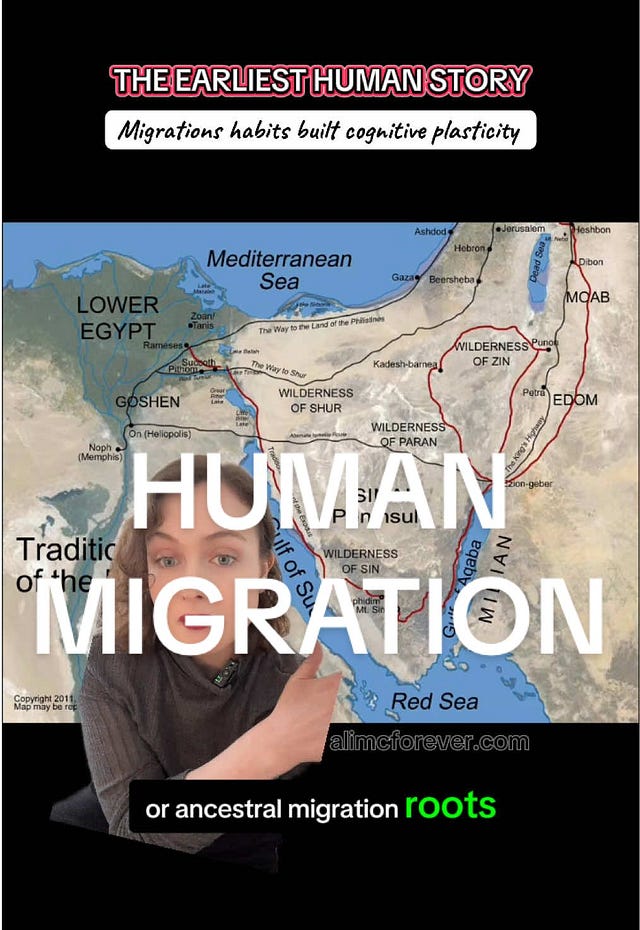
 Tiktok failed to load.
Tiktok failed to load.Enable 3rd party cookies or use another browser


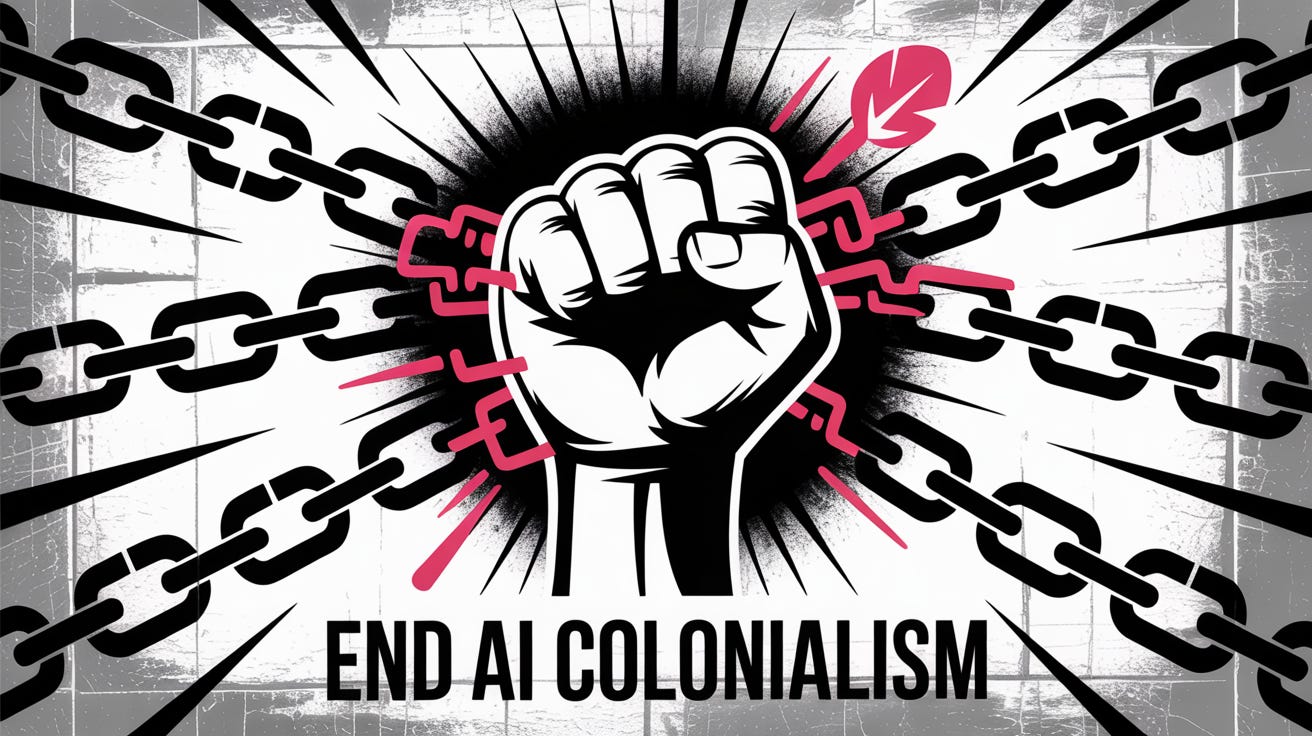
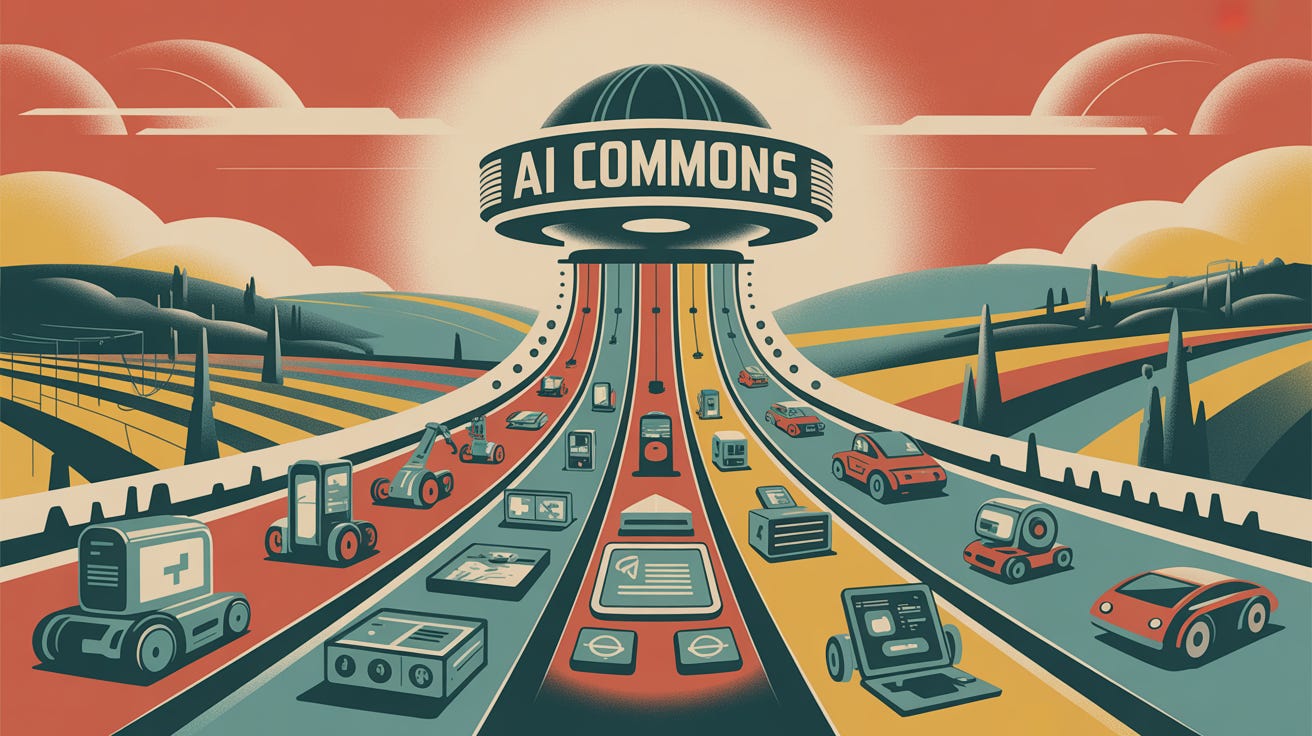
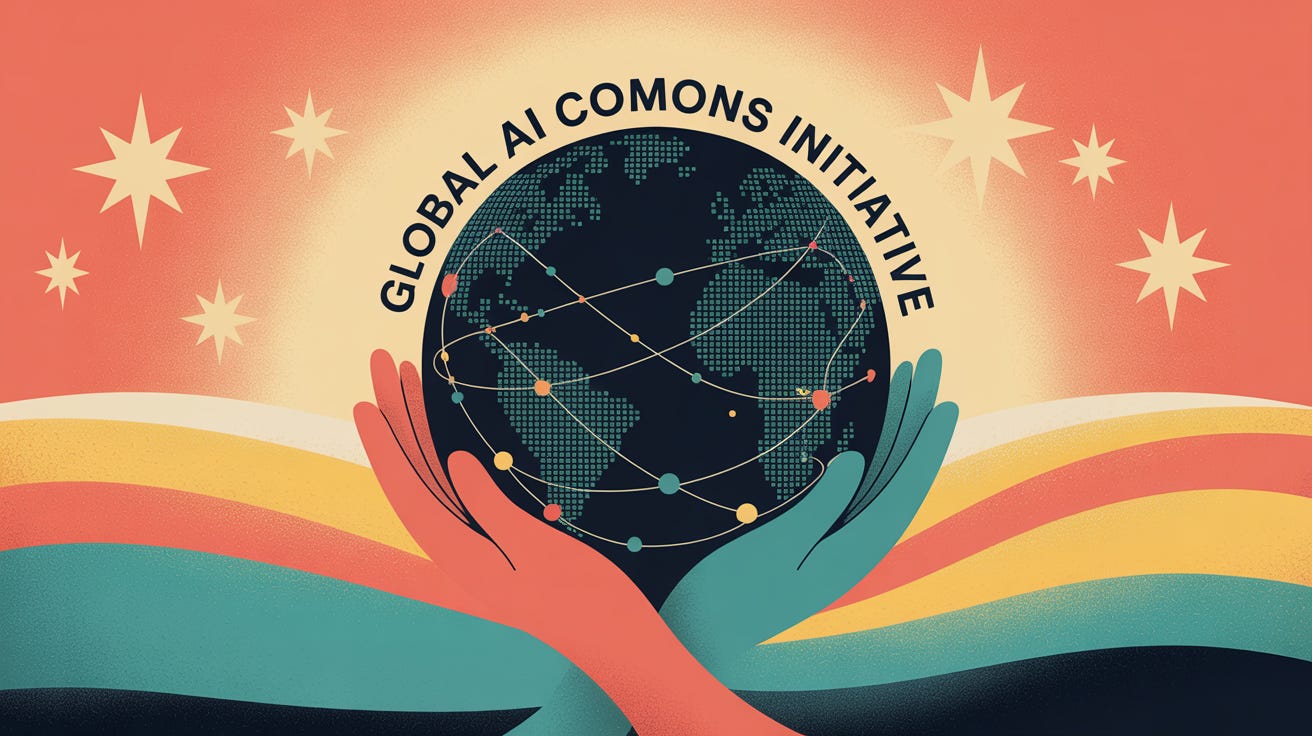
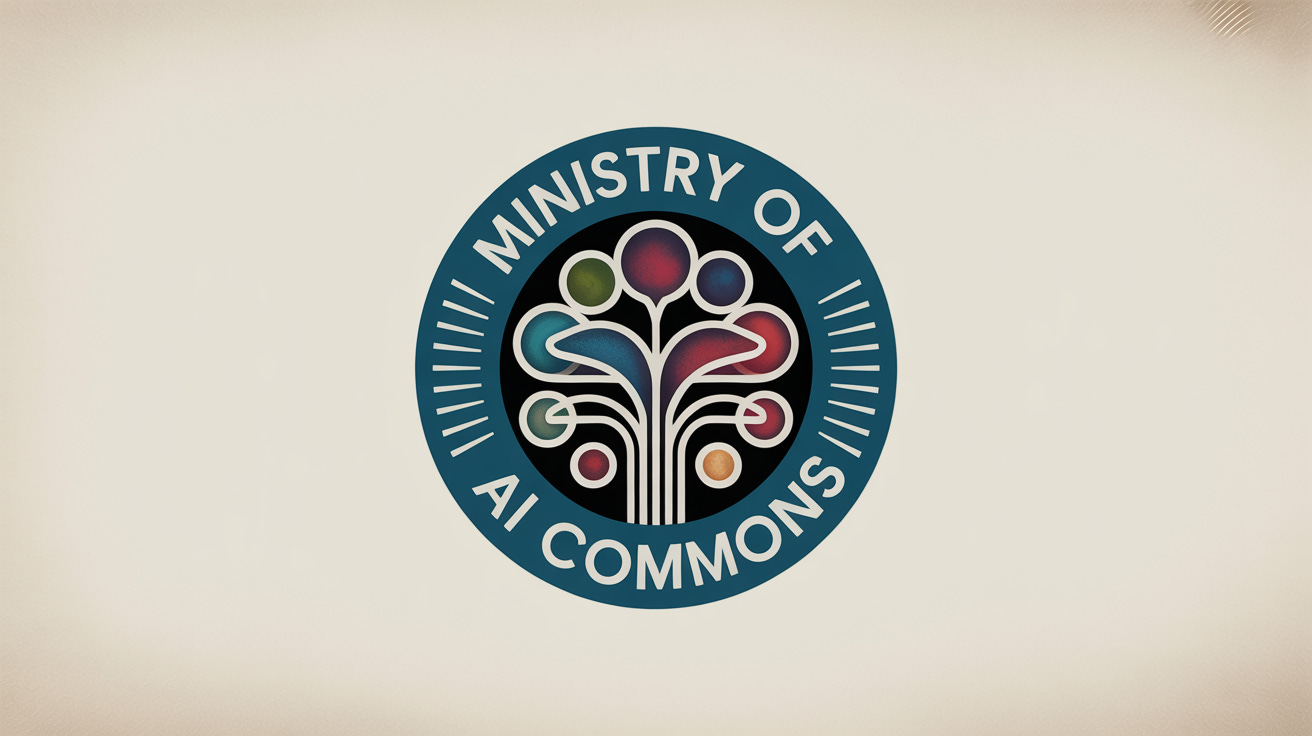
" if we were not living in this darkest of timelines… 😎"
...where the Dominion of Canada government actively enables private corporations to pollute the commons, and doesn't event equire a tiny bit of payment towards any cleanup.
I have a note on my phone title “ask this question to Jesse at Metaviews”
Could we create a sovereign GitHub-like repository for AI agents? Where the value derived from our collective development of AI can be shared amongst the commons?
Then you drop this delightful bit of futurism. And my question feels incredibly underbaked 🙃